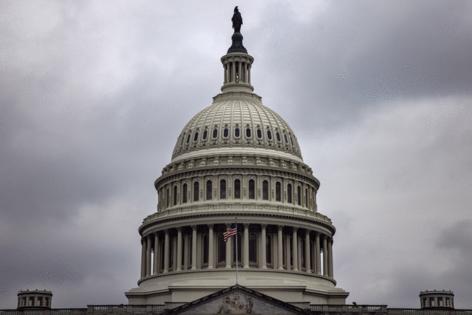Commentary: The high cost of big government -- A heist on taxpayers
Published in Op Eds
$521 billion. That’s the estimate the federal government itself put forward of annual fraud levels. That’s enough money to rebuild every crumbling bridge and school in the country — all squandered due to government incompetence.
In fiscal year 2024, just 16 agencies reported improper payment estimates that totaled $162 billion — money lost to error, fraud, overpayments, or ineligible claims. That’s part of a staggering $2.8 trillion lost since 2003.
And that’s just what’s been reported. Fraud-heavy programs like Temporary Assistance for Needy Families (TANF) and housing subsidies likely push the total higher.
This isn’t a mere accounting error; it’s a heist on taxpayers, stealing cash that could’ve stayed in your wallet.
Nearly 75% of these losses come from five programs: Medicare, Medicaid, the Earned Income Tax Credit, SNAP, and the Restaurant Revitalization Fund. For these programs, error rates amount roughly to 45%.
Unemployment insurance (UI) is another major culprit, with its controls collapsing during COVID-19 and fueling fraud through identity theft. Retirees wait for delayed Social Security checks while the government keeps paying benefits to the dead.
All told, that’s billions that could lower health care costs, stabilize Social Security, or shrink the deficit — all lost to the black hole of government dysfunction.
Worse, many federal agencies don’t follow basic accountability laws. In 2023, the Government Accountability Office (GAO) flagged 11 major agencies—including the Department of Defense (DOD), Health and Human Services, and Treasury—for breaking payment integrity laws.
The DOD exemplifies these problems. Despite its massive budget, it’s never passed a clean audit, and its outdated systems and lax fraud controls leave taxpayers footing the bill for untold losses.
Other government agencies skip reporting losses entirely or ignore fraud-reduction crackdowns.
No business could survive losing billions without tracking where it went — they’d go bankrupt overnight. In Washington, though, failure just demands more taxpayer dollars to bury the mess.
The national debt has soared past $35 trillion, with $2 trillion annual deficits piling up. Every wasted dollar — like the billions lost to improper payments — adds to a taxpayer burden that’s now over $270,000 per household.
As the government borrows more to cover these gaps, it floods the market with debt, pushing interest rates above 5%. Debt payments now outstrip defense spending — a fact that drives up mortgage rates, loan costs, and everyday expenses for families and businesses.
The GAO’s proposed fixes — stricter reporting, blocking ineligible payments, extending fraud investigations — are a start. But they don’t touch the root problem: Washington’s reckless expansion of government programs. When these programs grow too big, fraud and mismanagement become inevitable.
Some argue cuts harm the needy. But the real damage is the waste, which lets scammers siphon off billions that should reach veterans and retirees. More money won’t solve this problem; accountability will.
Congress must eliminate improper payments, not adjust them.
Agencies squandering taxpayer dollars should face budget cuts and leadership overhaul. Fraud prevention systems should be upgraded to require real-time ID checks (capable of stopping $60 billion in UI fraud outright) and eligibility verification prior to fund dispersal; all funding should be linked to performance.
Further, states should have to report data to the federal government from state administered benefit programs. This would aid efforts to truly crack down on fraud.
Congress needs to impose firm spending limits and enact a balanced budget amendment to restore constitutional governance and return to a limited government.
The government isn’t underfunded — it's wastefully stolen too much of what we have all worked hard to produce. Americans deserve a system that protects their hard-earned money, not one that squanders it.
_____
Richard Stern is Acting Director of the Roe Institute for Economic Policy Studies at the Heritage Foundation and Director of its Grover M. Hermann Center for the Federal Budget. Katherine Miller is a former member of Heritage’s Young Leaders Program.
_____
©2025 Tribune Content Agency, LLC.




























































Comments